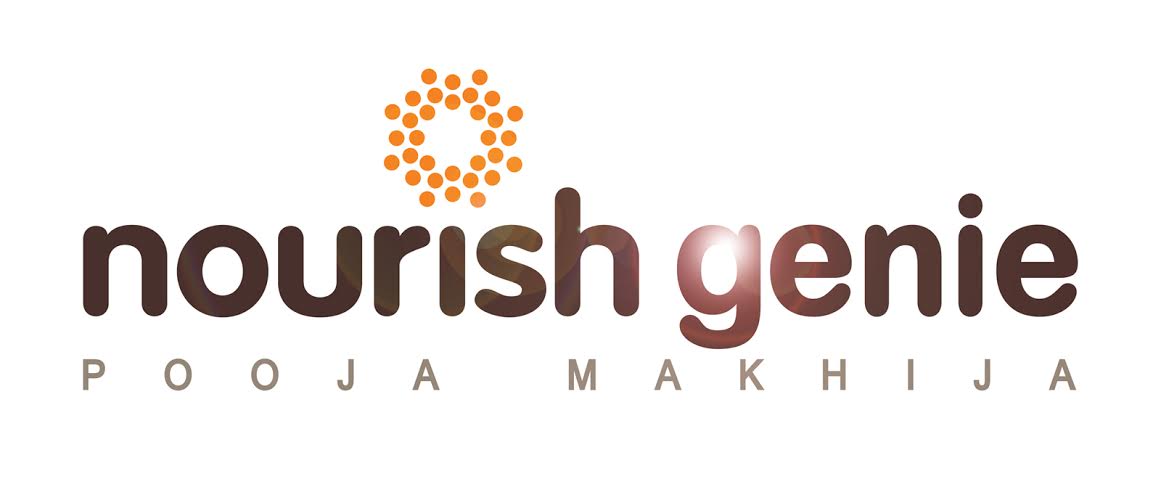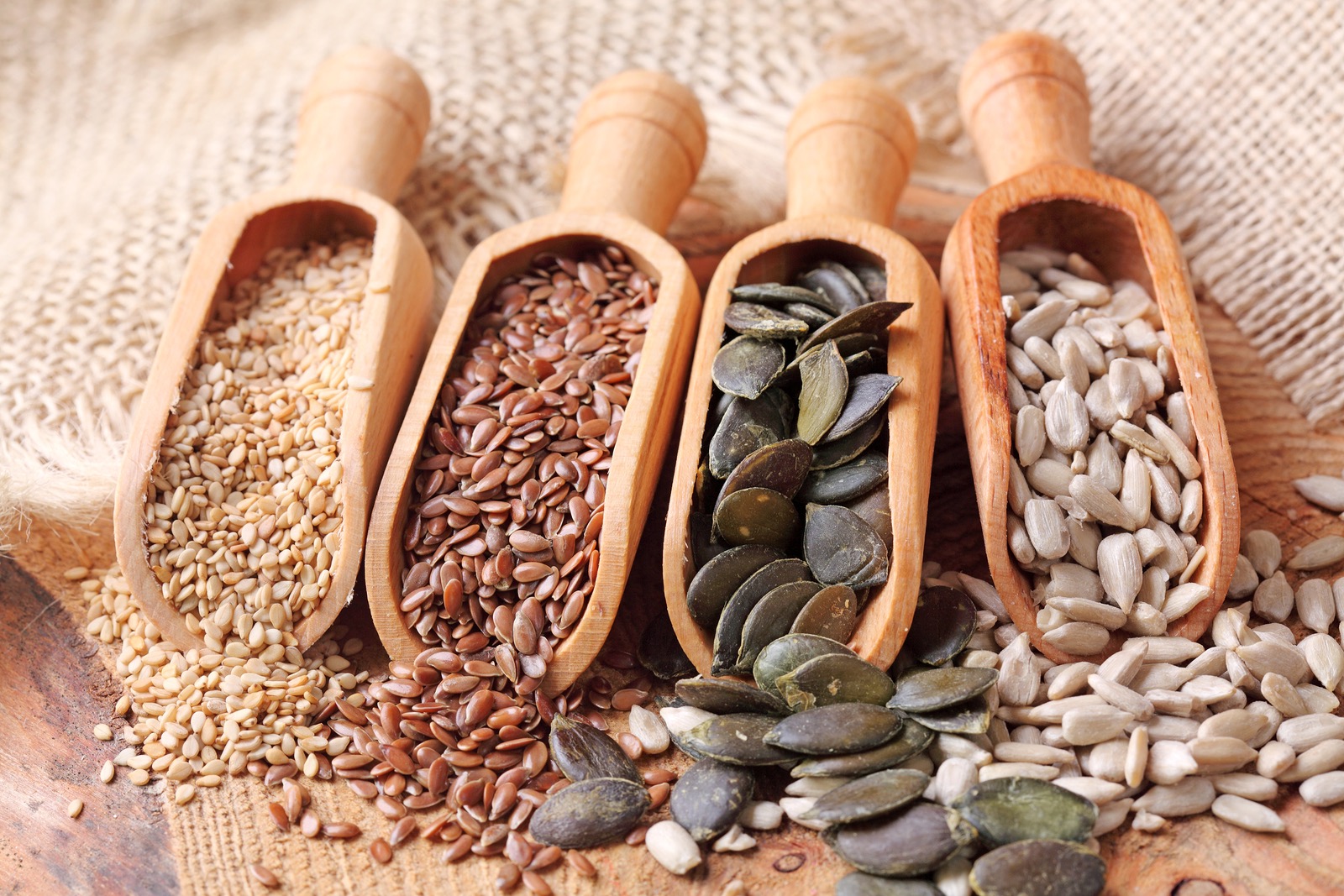HEMP SEEDS Advantages: A complete protein like egg, hemp seeds are an excellent source of easily-digestible proteins. They contain the essential fatty acids (Omega-6 and Omega-3) with GLA (Gamma-linoleic acid) that helps build anti-inflammatory hormones; they prevent conditions like arthritis, asthma and fibromyalagia.
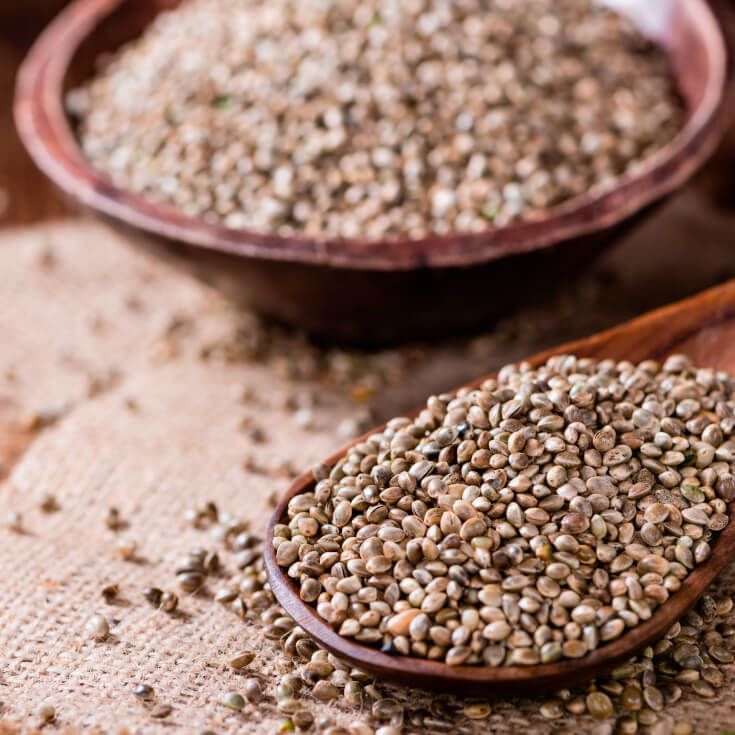
Add them to your diet: They look like sesame seeds but have a nutty flavour like sunflower seeds. Add them to salads or breakfast cereals, soups, pesto sauce (instead of cashew nuts) and post-workout smoothies for faster muscle recovery.
CHIA SEEDS Advantages: Excellent source of Omega-3 fatty acids, fibre and minerals like calcium, manganese and phosphorus (all necessary for healthy bones and teeth), chia seeds are a healthy addition to your diet. They lower insulin resistance (main cause of PCOD among women) and help fight diabetes, high blood pressure and cardiac problems.
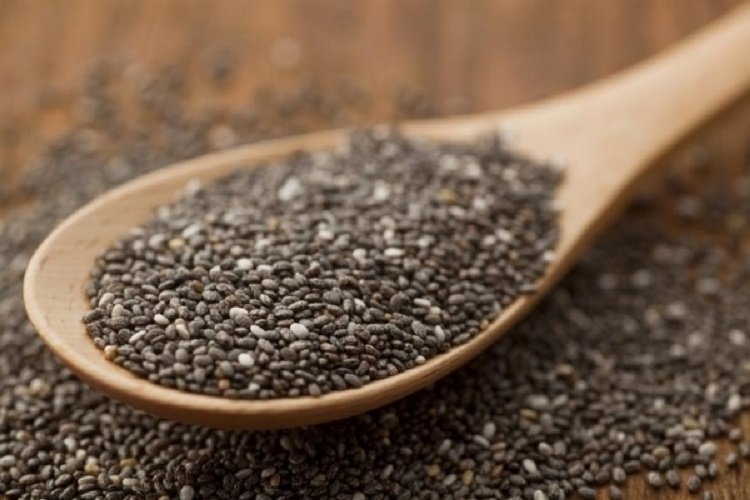
Add them to your diet: Chia seeds don’t have any particular taste. Add them to your breakfast your breakfast porridge or even plain milk. Sprinkle them (whole or ground) on salads or risottos, maketos, make them into a pudding with fruits, or make chia seed jam.
PUMPKIN SEEDS Advantages: Diversity in antioxidant content makes pumpkin seeds a good anti-ageing property. They contain Vitamin E in different forms, and thus benefit the skin. They ward off cancer, heart attacks, diabetes and have anti-fungal, anti-viral and anti-microbial benefits. A handful of pumpkin seeds, three to four times a week, is a must.
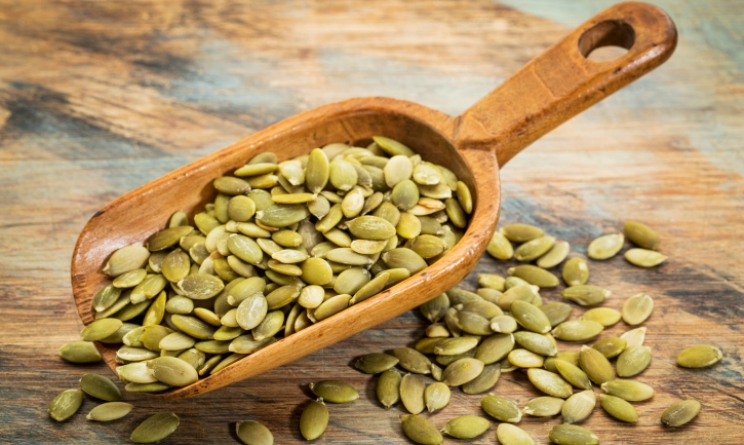
Add them to your diet: Roasted pumpkin seeds make for a tasty snack when flavoured with paprika or just lime and pepper. Do note they are high in calories too (100 gm = 560 calories), so limit your consumption. You can make granola bars out of them or add them to baked products, like muffins.
FLAX SEEDS Advantages: Rich source of dietary fibre, Omega-3 fatty acids and antioxidants, flaxseeds help adjust your good (HDL) and bad (LDL) cholesterol ratios and thus protect your heart, promote fertility, relieve constipation, improve immunity and avert production of cancerous cells.
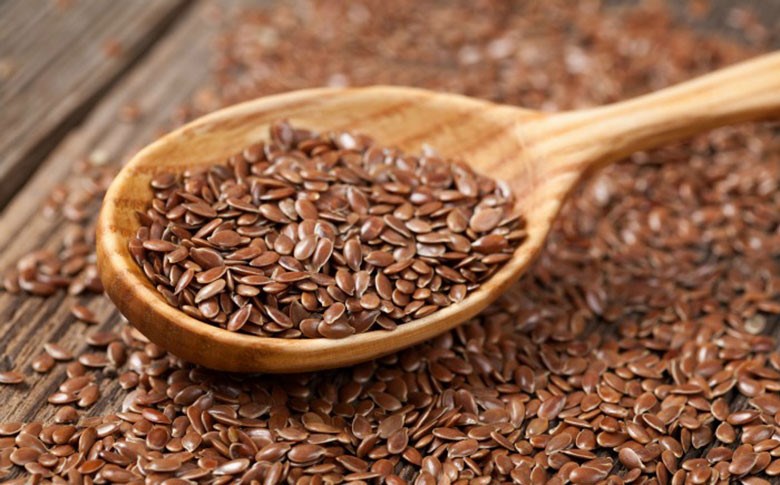
Add them to your diet: Most nutri tionists suggest that ground flaxseeds are better than whole because the former are easier to digest. However, remember, these seeds when ground and exposed to air, oxidise easily, turn rancid and lose their nutrition profile. So, grind small quantities, store in an air-tight container and consume them soon. Add them as a topping to yogurt, oatmeal, desserts and shakes.
SUNFLOWER SEEDS Advantages: An excellent source of Vitamin E, sunflower seeds neutralise free radicals and prevent asthma, osteoarthritis and rheumatoid arthritis.High in magnesium, they treat blood pressure, headaches and migraines along with promoting healthy teeth and bones.
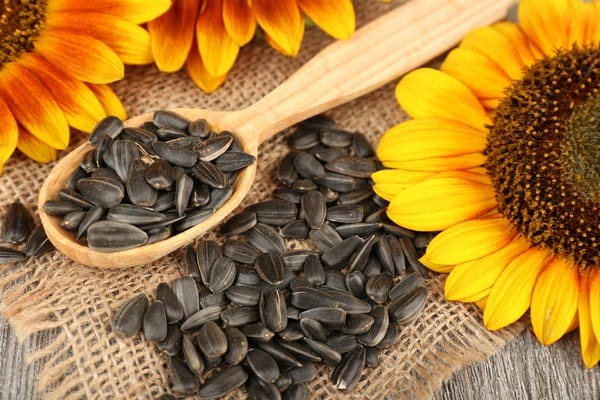
Add them to your diet: Because of their high fat content sunflower seeds be come rancid quickly. It is best to store them in the refrigerator. Add them to salads and scrambled eggs or sprinkle on hot or cold breakfast cereals.
SESAME SEEDS Advantages: Sesame seeds possess nutritive, preventive and curative proper ties. Their copper content helps provide relief from rheumatoid arthritis. Magnesium improves cardiovascular health and lung function while calcium prevents osteoporosis, migraine and PMS.
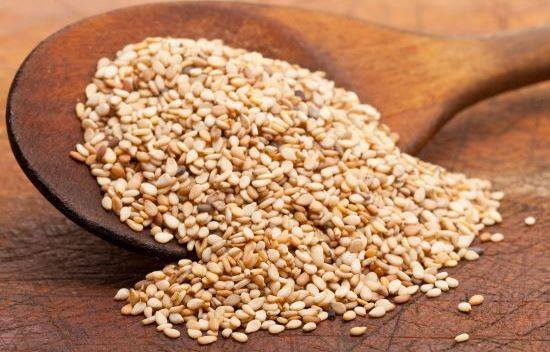
Add them to your diet: Tahini, made out of sesame seeds, is a favourite Arabic paste added to dips like hummus and moutabel. Sauté sesame seeds with vegetables or chicken, garlic, ginger and soy sauce or add them to breads, muffins or theplas and dhok theplas and dhoklas to increase their nutritional value.
